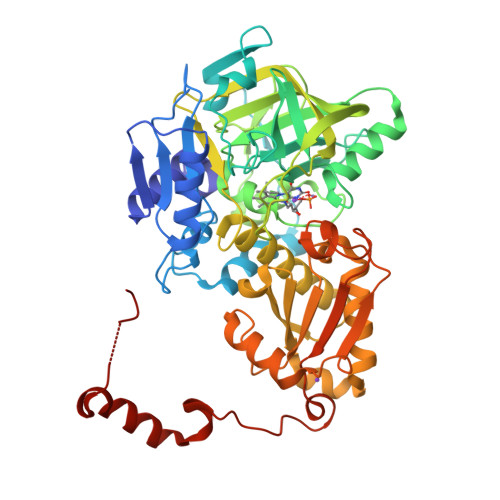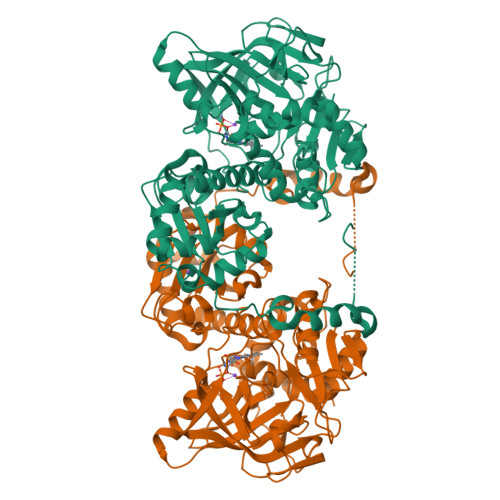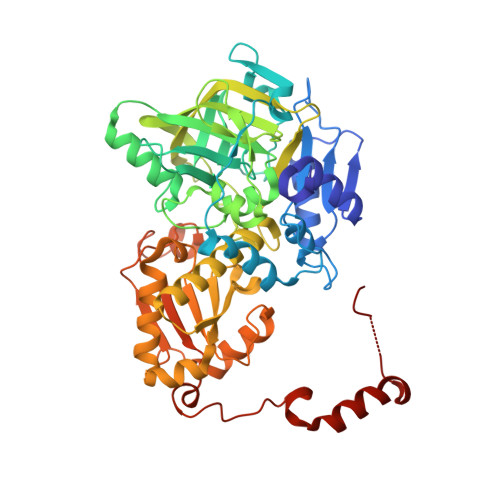New cofactor supports alpha , beta-unsaturated acid decarboxylation via 1,3-dipolar cycloaddition.
Payne, K.A., White, M.D., Fisher, K., Khara, B., Bailey, S.S., Parker, D., Rattray, N.J., Trivedi, D.K., Goodacre, R., Beveridge, R., Barran, P., Rigby, S.E., Scrutton, N.S., Hay, S., Leys, D.(2015) Nature 522: 502-506
- PubMed: 26083754
- DOI: https://doi.org/10.1038/nature14560
- Primary Citation of Related Structures:
4ZA4, 4ZA5, 4ZA7, 4ZA8, 4ZA9, 4ZAA, 4ZAB, 4ZAC, 4ZAD - PubMed Abstract:
The bacterial ubiD and ubiX or the homologous fungal fdc1 and pad1 genes have been implicated in the non-oxidative reversible decarboxylation of aromatic substrates, and play a pivotal role in bacterial ubiquinone (also known as coenzyme Q) biosynthesis or microbial biodegradation of aromatic compounds, respectively. Despite biochemical studies on individual gene products, the composition and cofactor requirement of the enzyme responsible for in vivo decarboxylase activity remained unclear. Here we show that Fdc1 is solely responsible for the reversible decarboxylase activity, and that it requires a new type of cofactor: a prenylated flavin synthesized by the associated UbiX/Pad1. Atomic resolution crystal structures reveal that two distinct isomers of the oxidized cofactor can be observed, an isoalloxazine N5-iminium adduct and a N5 secondary ketimine species with markedly altered ring structure, both having azomethine ylide character. Substrate binding positions the dipolarophile enoic acid group directly above the azomethine ylide group. The structure of a covalent inhibitor-cofactor adduct suggests that 1,3-dipolar cycloaddition chemistry supports reversible decarboxylation in these enzymes. Although 1,3-dipolar cycloaddition is commonly used in organic chemistry, we propose that this presents the first example, to our knowledge, of an enzymatic 1,3-dipolar cycloaddition reaction. Our model for Fdc1/UbiD catalysis offers new routes in alkene hydrocarbon production or aryl (de)carboxylation.
Organizational Affiliation:
Centre for Synthetic Biology of Fine and Speciality Chemicals, Manchester Institute of Biotechnology, University of Manchester, 131 Princess Street, Manchester M1 7DN, UK.



















